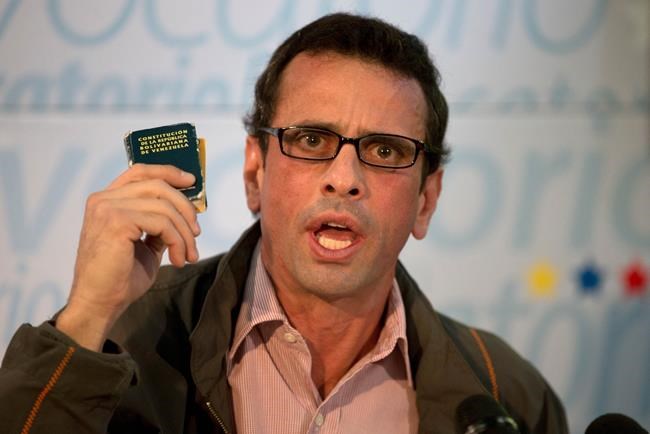Elevate your local knowledge
Sign up for the iNFOnews newsletter today!
Sign up for the iNFOnews newsletter today!
Selecting your primary region ensures you get the stories that matter to you first.

CARACAS, Venezuela – Venezuelan opposition leaders are rejecting a 60-day state of emergency declared by President Nicolas Maduro.
Maduro declared the state of emergency over the weekend, giving himself decree powers to intervene in the economy and protect national sovereignty. He said the expanded powers were needed to guard against U.S. meddling in the socialist country.
Opposition leader Henrique Capriles called the move unconstitutional Tuesday because Maduro acted unilaterally. Capriles said Venezuelans should reject the decree.
Capriles, a two-time presidential candidate, is expected to lead a march through the streets of Caracas on Wednesday to support calls for a voter referendum on whether to oust Maduro from office.
The opposition has filed a petition with enough signatures to authorize conducting a broader petition drive on holding a recall referendum.
But on Tuesday, Maduro called that initiative “optional.” He went on to accuse the opposition of working with the U.S. to orchestrate a coup against him.
Thousands of people tried to march to the electoral body last week, but were turned back by police who used tear gas.
A majority of voters tell pollsters they want to see Maduro gone. They handed the opposition a landslide victory in congressional elections in December, but state institutions have blocked the opposition-controlled congress from passing any legislation.
On Tuesday, Maduro said the congress had lost its legitimacy.
“I don’t expect anything good from congress. It’s a matter of time before it disappears, because it doesn’t represent our national interest,” he said.
This site is protected by reCAPTCHA and the Google Privacy Policy and Terms of Service apply.
Want to share your thoughts, add context, or connect with others in your community?
You must be logged in to post a comment.